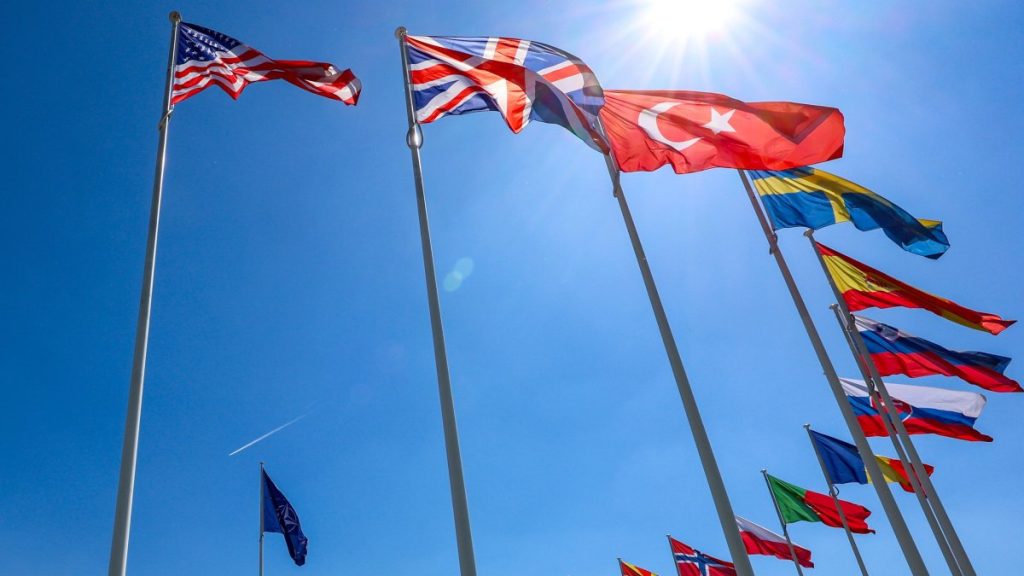Foreign Minister Hakan Fidan will host his counterparts on May 14-15 in Antalya, the Turkish city that last hosted an international diplomacy forum bringing together heads of state and government. The NATO foreign ministers’ informal meeting held over two days will be attended by representatives of 32 members of the bloc.
A preparatory meeting for next June’s NATO summit of heads of state and government in The Hague, the Antalya gathering is expected to focus on the defense expenditures of members. Europe’s defenses are a hot topic amid the Russia-Ukraine conflict and the new U.S. administration’s opinion that the continent should not rely on Washington for defense.
The future of Europe’s security and sharing the burden in trans-Atlantic security will be tackled at the summit. Turkish foreign ministry sources say Fidan will emphasize efforts to reinforce the primary role of NATO as a 76-year-old backbone of Euro-Atlantic security and how this role can be strengthened and remain efficient and deterring. He will highlight that further unity between NATO members would be essential to achieve it.
The minister will also underline Türkiye’s place in NATO with its strong army, modern military capabilities and advanced defense industry, and how it would continue contributing to Euro-Atlantic security and take on more responsibilities to that extent. He will also voice the necessity of inclusion of non-EU member allies like Türkiye to EU defense efforts, pointing out its location and influence in the EU security’s future, the sources said.
At the meeting, Fidan is expected to emphasize that Türkiye, which already exceeds NATO’s benchmark of allocating 2% of its gross domestic product (GDP) to defense spending, is committed to investing further in defense and enhancing its modern capabilities. He will underline that the removal of all barriers to defense industry cooperation and trade among allies is essential for developing the critical capabilities that are the main purpose of defense expenditures. Fidan will also highlight the need for a “360-degree security” approach, stressing the importance of ending the Russia-Ukraine war and establishing peace and stability in NATO’s surrounding regions and the Middle East. Additionally, he is anticipated to call for genuine solidarity in the fight against terrorism.
NATO chief Mark Rutte wants member countries to agree at the summit in June to reach 5% of GDP on defense-related spending by 2032, Dutch premier Dick Schoof said Friday.
U.S. President Donald Trump has demanded that NATO allies ramp up their military spending to five percent of GDP, a level that not even the United States currently hits.
Schoof said Rutte had written to NATO’s 32 member countries calling for them to reach 3.5% of GDP on “hard military spending” and 1.5% of GDP on “related spending such as infrastructure, cybersecurity and other things” over the next seven years.
Trump is piling the pressure on Europe and Canada to ratchet up NATO’s spending target at next month’s summit.
Rutte on Friday refused to confirm the figures being debated but said “internal discussions” were taking place within NATO.
Diplomats within NATO, speaking on condition of anonymity, said the proposal circulated last week envisioned increasing direct military spending by 0.2 percent each year to 2032.
They said the discussions were at an early stage, and there were no clear signs yet that there would be consensus for the figures.
The parameters of what could be included in the 1.5% of loosely related defense spending were still to be defined, they said.
“It makes no sense to argue about abstract GDP percentages now. What is crucial is that we continuously expand our efforts over the next few years,” Germany’s new chancellor, Friedrich Merz, said during a visit to NATO’s headquarters in Brussels on Friday.
Merz said that for Germany, every increase of one percent of GDP represented 45 billion euros ($50 billion).
Trump has long accused Washington’s allies of underspending on their defense and taking advantage of U.S. largesse. He has also threatened not to protect countries that do not spend enough on their military, in his eyes.
European countries have ramped up their defense spending since Russia’s invasion of Ukraine in 2022, but Rutte says they must go considerably higher to ward off Moscow.
Last year, 22 of NATO’s 32 allies hit their current spending target of 2% of GDP on their militaries.
A string of countries, such as Italy, Spain, Canada and Belgium, that still lag below that level have pledged to reach it in 2025.
The United States last year spent 3.19% of its GDP on defense, behind eastern flank countries Poland, Estonia and Lithuania close to Russia.
But Washington remains by far the biggest military spender in NATO in absolute terms, accounting for 64% of all defense expenditure last year.
In a bid to help European countries bolster their spending, the EU has proposed loosening budget rules and establishing a 150 billion euro defense fund.
Speaking in an interview with 24 TV last Friday, Fidan said Europe’s security architecture is two-tiered and pointed out how the U.S. questioned its presence in Europe, although it did not take a step to withdraw from providing security for NATO or Europe.
“European countries are clear on minimizing their dependence on the U.S. for the defense industry,” Fidan stated.


